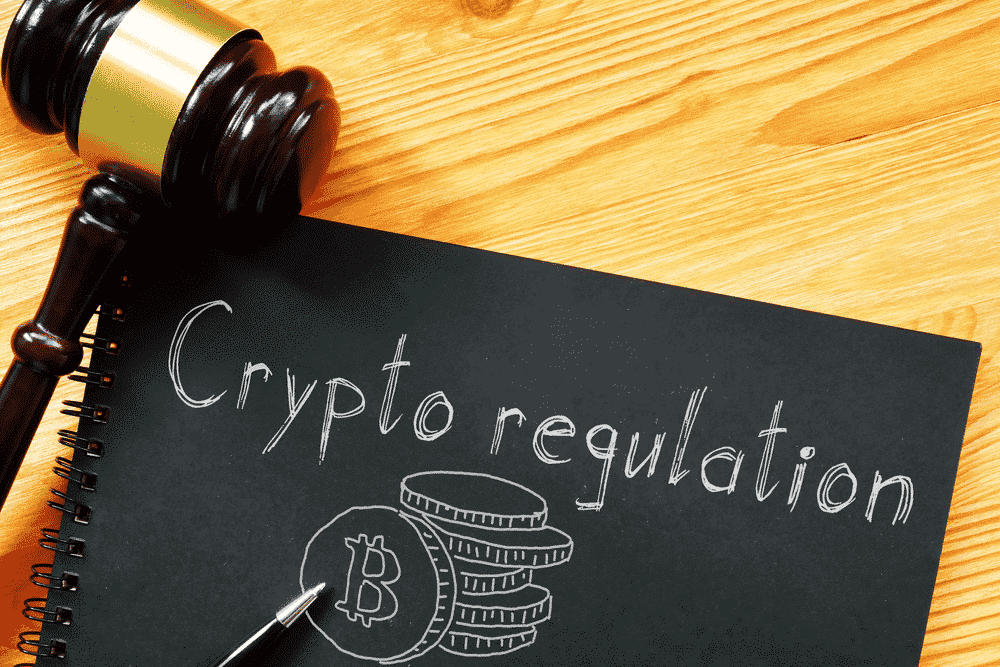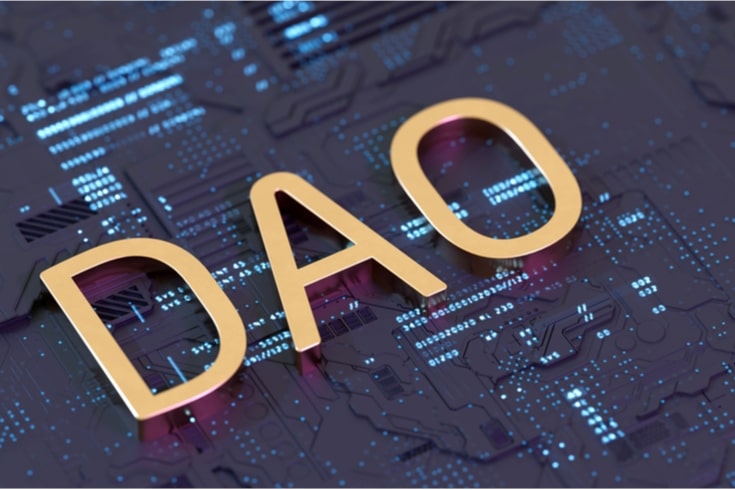The Regulation of ICO and the Methods of Conducting Legally

ICO is an acronym that stands for Initial Coin Offering, and generally refers to the act of a company procuring cryptographic assets (virtual currency) from the public and issuing new electronic tokens in return.
In May 2017, ICO exploded in popularity as a means of fundraising in response to the soaring prices of crypto assets. As there were no established regulations surrounding ICOs at the time, it became a more convenient and faster way to raise significant amounts of capital compared to traditional initial public offerings (IPOs), gaining attention in Japan.
In contrast, the prevalence of fraudulent transactions has spurred a global push to regulate ICOs, with China taking the lead. As a result, ICOs are now subject to regulation.
Now that the laws and regulations surrounding ICOs have been elucidated, what steps should be taken to carry out an ICO? In this article, we will provide guidance on conducting a legally compliant ICO, while also offering an overview of Japanese laws and regulations related to ICOs.
ICO Overview

As previously stated, an Initial Coin Offering (ICO) refers to the process of a company issuing new electronic tokens to the public for the purpose of obtaining crypto assets or virtual currency.
The Financial Instruments and Exchange Act (referred to as “FIEA”) typically governs the acquisition of funds through securities listed under Japanese law, including stocks. However, due to the issuer’s discretion in determining the nature of ICO tokens, it remains unclear whether they qualify as securities under Japanese law or not.
To begin with, we will categorize ICO tokens based on their properties and subsequently elaborate on the legal and regulatory aspects associated with each type.
Types of ICO tokens
The Japanese Financial Services Agency’s report categorizes the content of ICO tokens into three distinct categories.
| Investment type | The issuer is obligated to distribute future business profits, among other things. |
| Other types of rights | Issuers are said to have obligations other than the above, such as the provision of goods or services in the future. |
| Rights-free type | Issuer is said to have no obligations |
Now, using the aforementioned classification, we will examine the implementation of laws and regulations in Japan.
Japanese Laws and Regulations for ICOs Overview
The Japanese Financial Instruments and Exchange Law and the Japanese Funds Settlement Law are the primary laws that could be applicable to ICOs in Japan.
| Financial Instruments and Exchange Act | Act to ensure fairness in the issuance of investment securities and transactions of financial instruments, etc., and to protect investors |
| Payment Services Act | A law to deal with new services that are different from the conventional services provided by banks due to the development of information and communication technology, promote innovation, and protect users. |
A key factor that sets apart the application of Japan’s FIEA and Payment Services Act is determined by the presence of investment potential.
Related article: What are cryptocurrency regulations? Explanation of the relationship between the Payment Services Act and the Financial Instruments and Exchange Act
ICO Regulation under Japanese FIEA
The Financial Instruments and Exchange Act of Japan categorizes “securities” as the investment-type financial instruments it covers, which includes common types like stocks and corporate bonds. Depending on the type of securities, specific regulations such as information disclosure and business regulations aimed at investor protection are imposed on activities such as issuance and trading under the purview of the Financial Instruments and Exchange Act.
The FIEA includes Article 2, Paragraph 2, Item 5 which provides a comprehensive definition of securities to address new investment-focused financial products not explicitly listed.These securities are commonly referred to as “collective investment scheme interests”.
As stated earlier, ICO tokens are not explicitly listed as securities. Hence, determining if an ICO falls under the category of a collective investment scheme and is subject to FIEA application requires a specific individual assessment of the content of the ICO token.
Cases related to collective investment scheme interests
To invest in a collective investment scheme, the following requirements must be met:
- Investment or contribution of money, etc. by a person with rights
- The business (invested business) is operated using the contributed money, etc.
- The right holder has the right to receive a dividend of profits generated from the invested business or a distribution of property related to the invested business
Any legal form, such as partnership or membership rights, that fulfills the aforementioned requirements will be classified as equity in a collective investment scheme. This is in accordance with the regulations.
The 2019 revision specifies that crypto assets are included in the definition of “money” as stated in Requirement 1 (Article 2-2 of Japan’s Payment Services Act). This clarifies that investing in crypto assets falls under the scope of Japan’s FIEA.
Based on the types of ICO mentioned above, investment-based ICO tokens are essentially equivalent to equity in collective investment schemes and are subject to Japan’s FIEA regulations.
ICO tokens categorized as “Other rights type” or “No rights type” do not possess the right to seek the distribution of profits or property from the invested business (which does not satisfy requirement 3), and as such, are not subject to the FIEA. Therefore, it is necessary to consider separately whether the “Other rights-type” or “No rights-type” tokens are subject to the Payment Services Act.
ICO and Funds Settlement Act
The Payment Services Act stipulates different regulations for non-investment payment or settlement instruments based on their type, such as “crypto assets” and “prepaid payment instruments.”
To determine if the Payment Services Act applies to ICO tokens categorized as “other rights-type” or “non-rights-type”, it is essential to establish whether the token qualifies as a “crypto asset” or “prepaid payment instrument.” Clarity and specificity are crucial.
Cases involving Crypto Assets
According to Article 2, Paragraph 5, Item 1 of the Payment Services Act of Japan, “crypto assets” are defined as assets that satisfy the following criteria under the law.
- Can be used to make payments for goods and services against an unspecified person. At the same time, can mutually exchange with legal currency against an unspecified person.
- Electronically recorded and transferable.
- These assets cannot be considered as legal tender or as currency-denominated assets.
- The “right to transfer electronic records” as stated in Article 2, Paragraph 3 of the FIEA must not be presented.
Requirement 4 states that “Electronically Recorded Transfer Rights” refer to collective investment scheme interests that can be electronically recorded and transferred. This helps distinguish legal “crypto assets” from financial instruments that are used for investment purposes, and regulates them as a means of payment and settlement.
The Payment Services Act of Japan categorizes crypto assets under Item 2, which includes property values that meet the criteria of requirements 2 to 4 and can be exchanged with unspecified persons.
Related article: What are crypto assets (virtual currencies)? Explanation of the difference from Japanese legal definitions and electronic money
If dealing with crypto assets, conducting the following actions as a business in Japan requires registration as a “crypto asset exchange business” under Article 63-2 of the Payment Services Act.
- purchase and sale of a crypto-asset or exchange with another crypto-asset;
- intermediary, brokerage or agency services for the act set forth in the preceding item;
- management of user’s money, carried out by persons in connection wit htheir acts set forth in the preceding two items; and
- management of crypto-assets on behalf of another person (excluding cases where the relevant management in the course of trade is governed by special provisions of other Acts)
According to Paragraph 7 of Article 2 in the Payment Services Act of Japan, as translated from Japanese law, the following provisions are outlined.
The issuance of crypto-assets itself is not directly regulated by the crypto-asset exchange business. However, if the ICO tokens are considered crypto-assets, then the exchange of these tokens for other crypto-assets falls under the exchange business category. Consequently, the business must register as a crypto-asset exchange.
Related article: What is custody business? Commentary on regulations on crypto asset exchange service providers
Cases involving prepaid payment instruments
The term “prepaid payment instruments” (Article 3, Paragraph 1) refers to instruments that satisfy the following conditions.
- Property value such as amount and quantity is described/recorded
- A certificate or a number must be issued for a corresponding amount or quantity in exchange for consideration.
- This payment method can be used to pay a specific individual.
When it comes to prepaid payment instruments, the issuer is required to fulfill certain obligations like registration, notification, and security deposit for issuance, which vary based on whether it is an “own type” or a “third-party type.”
If the remaining balance on the reference date exceeds 10 million yen (total issue amount = total collection amount), a deposit equivalent to 50% of the balance must be made as an issuance security deposit, as stated in Article 14, Paragraph 1 of Japan’s Fund Settlement Act and Article 6 of the Enforcement Order. Consequently, the initial goal of ICO, which is to raise funds, may not be achieved.
Exceptions to the Payment Services Act of Japan exist for certain types of payment instruments that meet specific criteria, such as those with a validity period of six months or less from the date of issuance. (As stated in Article 4, Item 2 of the Payment Services Act and Article 4, Paragraph 2 of the Order for Enforcement.)
As per the guidelines outlined in the Crypto Asset Exchange Business Guidelines I-1-1, crypto assets and prepaid payment instruments fall under the category of crypto assets, with the distinguishing factor being the type of usage – whether it is available for use by anyone or specific individuals.
Penalties for Unlawful Initial Coin Offerings

If an Initial Coin Offering (ICO) is carried out without being registered as a financial instruments business in Japan, even though it falls under the category of a collective investment scheme and is subject to the Financial Instruments and Exchange Act (FIEA), it will be punishable by up to 5 years of imprisonment with work or a fine of up to 5 million yen, or both, as stated in Article 197-2 of the Financial Instruments and Exchange Act of Japan.
If an individual or entity is found to be violating the Payment Services Act of Japan by engaging in regulated activities without proper registration as a crypto-asset exchange business, or by issuing prepaid payment instruments without fulfilling deposit obligations, they may face imprisonment with work for up to three years, a fine of up to three million yen, or both, as outlined in Article 107 of the Payment Services Act of Japan.
Moreover, depending on the circumstances, you may also face charges of fraud, violation of the Investment Law, violation of the Act on Specified Commercial Transactions, and other related offenses in Japan, which carry heavy penalties.
Legal Considerations for Conducting an ICO
When carrying out an initial coin offering (ICO), it is imperative to adhere to numerous laws and regulations. Apart from utilizing a third-party that is registered as a cryptocurrency exchange business, there is currently only one way to conduct an ICO independently, without being subject to the Financial Instruments and Exchange Act (FIEA) or the Funds Settlement Act. Currently, there is only one single method which is the following.
- One option is to release ICO tokens as a prepaid payment instrument that satisfies the criteria for exemption from the Payment Services Act, with an expiration date of no more than six months from the issuance date.
ICO campaigns are typically launched to secure funds for upcoming projects. Therefore, if the token expires within six months, it would be of no value to the buyer.
It is feasible to conduct an ICO legally by registering as a financial instruments business or a crypto asset exchange business in Japan. However, such registration processes have stringent requirements that may not be practical for small and medium-sized enterprises to meet.
It is possible to issue Prepaid Payment Instruments that do not meet exemption requirements. However, as previously discussed, this may result in registration, notification, and the obligation to deposit security deposits for issuance. Additionally, there is a risk that the issuance may not fulfill the ICO’s objective of raising funds.
Thus, it can be asserted that utilizing a third party that is registered as a crypto asset exchange business is the sole legal and viable option for conducting an ICO.
Consulting a Lawyer for Conducting an ICO
As previously mentioned, ICOs were once viewed as a convenient and expedient way to obtain funds, but due to changes in Japanese regulations and other factors, they have become widely subject to regulation. Furthermore, ICOs cannot be generalized, as the application of laws is complex and depends on the type of ICO token being issued.
If you are contemplating the implementation of an ICO, we advise that you seek the counsel of a lawyer experienced in crypto assets and financial regulations.
Guidance on Countermeasures by Our Office
Monolith Law Office is a legal firm that specializes in IT, particularly the Internet and law. Our firm offers complete assistance to businesses involved in crypto assets and blockchain.
Category: IT





















